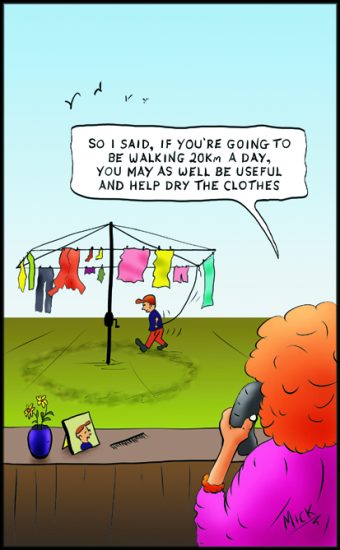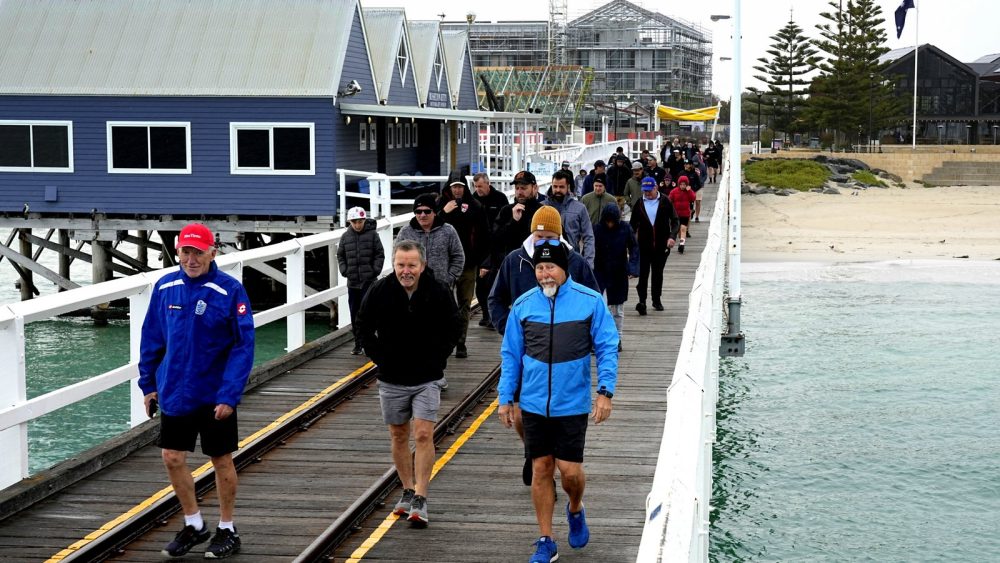Our ancestors were used to walking up to 20 kilometres per day, they had to, to survive on the Savannah Plains and the Serengeti or they would end up as someone’s lunch. We are not designed for sitting around and not exercising. The human body has not had millions of years to adapt to our sedentary lifestyle and we need to change our habits before it is too late.
Blokes have had a significant change because many of the work tasks that have always been manually done are now obsolete or automated.
Exercise is essential for our brain, mind, body and our cardiovascular health. I read a book titled Brain Rules by John Medina and rule 1 (out of 12 brain rules) is exercise boosts brain power. An enlightening read.
There are a lot of variables, from nurture to nature, that help how we age but one of the greatest predictors of successful ageing is the absence of a sedentary lifestyle. Industrialization has given us many benefits, but it has also meant, that for most of us, we have gradually quit moving. The result of this is more and more Australians are being classified as being overweight, with the fastest growing chronic condition in Australia in 2022 being Type 2 Diabetes.
There is a lot of current research that suggests exercise can:
- help prevent Type 2 Diabetes (by up to 60%);
- improve our cardiovascular health thus decreasing the risk of strokes and heart attacks;
- affect the outcome of both anxiety and depression. The fact that exercise helps regulate the release of chemicals (serotonin, dopamine, and norepinephrine) into our bodies makes it an important element in maintaining the right balance;
- halve the risk of general dementia through aerobic exercise, just twice a It can also cut the risk of Alzheimer’s by 60%.
 So, what does this all mean for our exercise regime? There is a lot of advice around with different suggestions on exercise requirements. This varies from 5 minutes high intensity, to 30 minutes per day, to 1 hour a day every second day. We are the only one that knows our body’s physiology and what will ultimately work for us. A guide is a minimum of 150 minutes per week of moderate exercise.
So, what does this all mean for our exercise regime? There is a lot of advice around with different suggestions on exercise requirements. This varies from 5 minutes high intensity, to 30 minutes per day, to 1 hour a day every second day. We are the only one that knows our body’s physiology and what will ultimately work for us. A guide is a minimum of 150 minutes per week of moderate exercise.
If you are limited in how you can exercise you can still make a difference. If you can physically walk only 50 metres a day, double it! Walking 100 metres per day compared to 50 metres can make a difference. The improvement in your body’s physiology will be profound and the positive effect is that starting with a little bit of exercise will make you want to move more.
Exercise options are endless, swimming, hydrotherapy, light gym work, walking groups, belonging to sporting groups, volunteering. Although in regional WA sometimes these options can be limited for people to access.
Don’t let it stop you exercising – get moving!
By The Regional Men’s Health Initiative




Comments are closed.